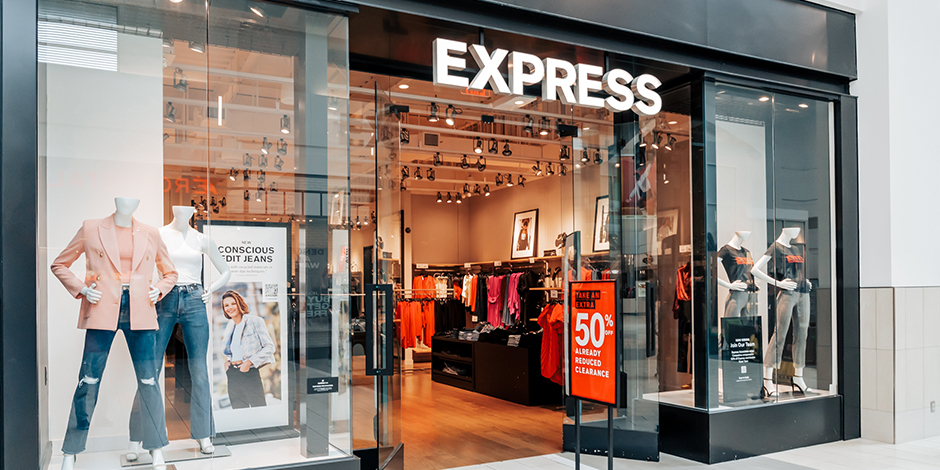Express Inc., the fashion retailer that catered to young professionals with affordable, stylish office wear for the past several decades, may be the next Bed Bath & Beyond – a once-successful brand now worth more dead than alive.
For a company that projects current-year revenue of about $2 billion, you could theoretically buy the whole kit and kaboodle for about $30 million at its current stock price.
As if that isn’t a confounding enough statistic, the company’s board recently mustered out CEO Tim Baxter, ex-chief merchandising officer at Macy’s (another wobbly retailer), and replaced him with Stewart Glendinning, previously chief financial officer at Tyson Foods (think Jimmy Dean sausage) for salary and bonuses pegged at $8 million.
With no apparent background in fashion or retailing, it’s hard to imagine an Express narrative that ends with anything better than a financial train wreck.
The woes at Express have been well-known for some time. The company’s revenues peaked in 2015 at $2.3 billion and have been trending down ever since. It looked for a time like the company was bouncing back from the pandemic shutdown in 2020. The stock peaked last December but crashed soon after.
In March, the New York Stock Exchange warned that it was at risk of being delisted because it had been trading below the exchange’s minimum of $1.00 a share, down 90% in one year. To assuage unhappy stockholders, the company engineered a reverse stock split, exchanging one share for twenty, a sleight-of-hand that changed nothing but resulted in a price that met the exchange’s minimum standards.
The plight of Express is a familiar one. As an experienced Advisor to leaders in the retail industry on consumers and their product offering, success requires a vision in the corporate suite and, especially, experience. The company’s outgoing CEO, Baxter, had experience. Still, it was at Macy’s, another retailer that peaked in 2015 and has suffered ever since, sliding off its perch as the classy place to shop while the world was pivoting to e-commerce and direct-to-consumer brands.
The focus of management at Express this year has been on shareholder value. That means cutting costs, closing stores, and layoffs. Earlier this year, it looked for a time like that strategy might work under Baxter.
But you can’t rescue a brand by firing people and closing stores.
Like Macy’s, Express allowed its competitors to chip away at its core customer base.
While the bean counters were trying to figure out the financial engineering, the dynamics in the young professional’s market have shifted. Working from home during the pandemic was a blow, as has the shift in styles to more casual work wear. That same cohort is about to get their pandemic-suspended college loan payment notices in the mail, leaving them less to spend on looking good at work.
The appointment of Glendinning is the key tell to Express’s future. If the company had intended to reinvent the brand, it would have hired an experienced and dynamic retail exec. Instead, it hired a financial expert whose stated mission is to “create shareholder value,” code words, in my opinion, for appeasing short-term investors through some sort of liquidation or other financial machinations.
Express needs a vision focused on a specific customer and products that align with their wants and needs. They used to have and could have it again but desperately need direction.
Read the full blog on Forbes.com. *Subscription required.
















